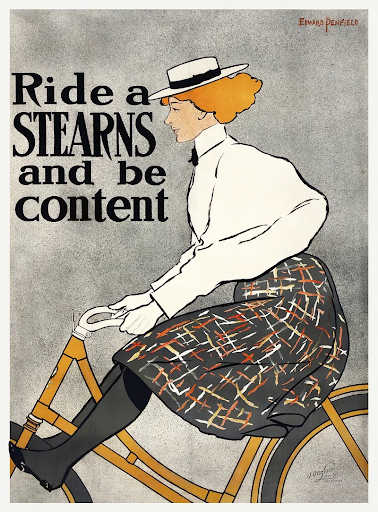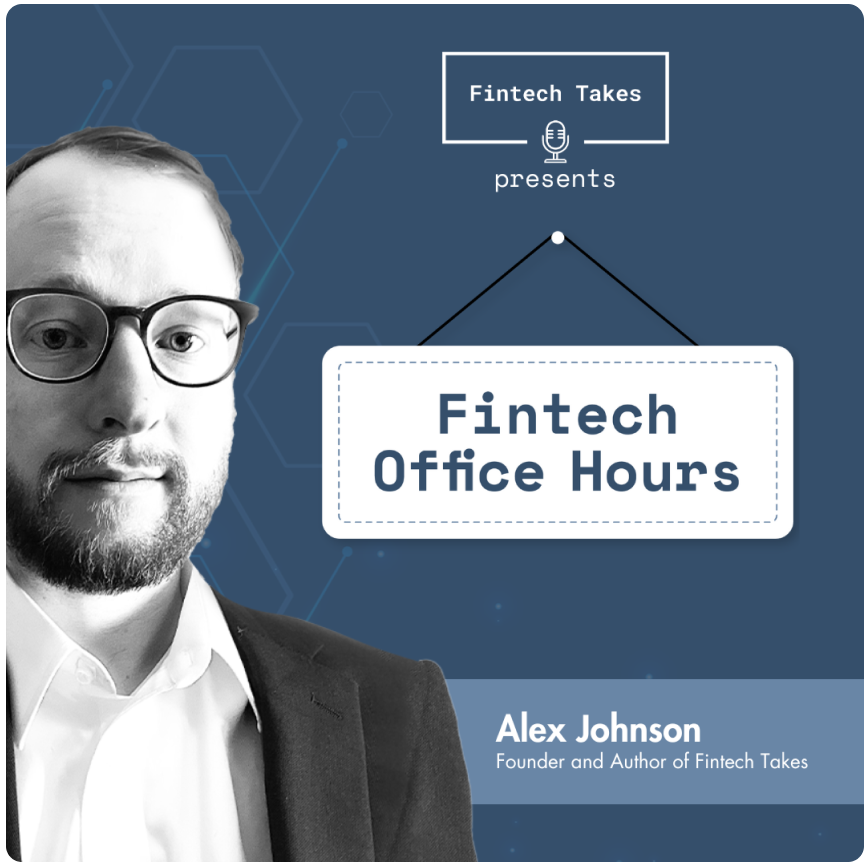
3 FINTECH NEWS STORIES
#1: This Survey I Paid For Says I’m Really Good at My Job.
What happened?
The Consumer Bankers Association commissioned a survey of 1,197 U.S. consumers:
The Consumer Bankers Association (CBA) today released the results of a national survey that explores how Americans value banking services and innovation, in advance of its annual conference CBA LIVE which begins today. Notably, the survey found:
- An overwhelming majority – 8 in 10 Americans (83%) – believe banks are doing a good job helping them avoid scams.
- Americans view scam prevention tools to keep their accounts secure and convenience-oriented offerings as extremely or very important.
So what?
These kinds of surveys are hilarious. You have a PR problem (publications like the New York Times keep interviewing consumers who are getting scammed through your P2P payments app, and this is getting regulators and U.S. Senators all wound up). So you find a market research firm that can design a consumer survey that will demonstrate that no, in fact, consumers actually feel really safe and happy. And then you push out the results in a triumphant press release, with a quote like, “this survey data confirms that retail banks are meeting the needs of Americans when it comes to both security and convenience.”
Despite this top-notch public relations work, it’s pretty easy to poke holes in this story:
- The easiest way to push back on the ‘consumers are getting hurt with Zelle’ narrative would be to say that the actual incidence rate of scams is much lower than the New York Times would have you believe. It’s telling to me that CBA didn’t do this. In fact, they confirmed that scams are a huge problem! They included this in the press release – “the FBI’s 2022 Internet Crime Report found that more than $10 billion in losses were incurred in 2022 from online scams reported to the Bureau, the highest annual loss since 2018.”
- In spite of saying that American view scam prevention tools as extremely important, they don’t seem to have access to them. According to the CBA survey, only 56% of consumers have received scam prevention warning notifications before completing a transaction (and only 25% of consumers frequently get such notifications).
- The CBA survey also went out of its way to avoid asking a very important question – if you have been scammed through your bank or P2P payments app, how satisfied were you with the assistance you received from your bank in the aftermath? I’m guessing they knew they wouldn’t like the answer.
Allow me to channel my inner Jane Fonda for a moment – you have a PR problem because you have an actual problem.
Banks’ actual problem is that they insist on drawing this chickenshit distinction between fraud and scams rather than just focusing on protecting their customers.
All the PR strategizing in the world won’t fix it.
#2: Two Minds on Apple Pay Later
What happened?
Apple Pay Later, Apple’s pay-in-4 BNPL product, is finally rolling out:
Apple Pay Later users will be able to manage, track and repay their loans in their Apple Wallet, the company said in a release. Individuals can apply for Apple Pay Later loans of between $50 and $1,000 and use them for in-app and online purchases made through merchants that accept Apple Pay. Payments have no interest and no fees.
The Mastercard Installments program enables Apple Pay Later, so merchants that already accept Apple Pay will not need to make any changes to implement the software for their customers.
Users can apply for a loan within the Apple Wallet app without it affecting their credit score, Apple said. Once they select the amount they would like to withdraw, a soft credit pull will be conducted to make sure they are in “a good financial position” to take on a loan, according to the release.
Approved users will see a “Pay Later” option while using Apple Pay to check out online and in apps on iPhones and iPads. They will also be able to apply for a loan right at checkout. Apple said purchases using the software will be authenticated using Face ID, Touch ID or a passcode.
So what?
I’m of two minds on Apple Pay Later.
Here, let me show you.
Alex’s Apple Pay Later Optimist Mind: Apple has a huge base of high-value users and has already made some progress in getting them to adopt Apple Pay. This will make Apple Pay more valuable for consumers, and Apple, because it is doing the lending off its own balance sheet and lending licenses, is in a position to capture the lion’s share of the revenue. By utilizing Mastercard’s one-time virtual BNPL cards (issued by Goldman Sachs) for payment, Apple can get ubiquitous merchant acceptance without building any merchant integrations. And Apple’s control over iOS means it can always ‘preempt’ any other payment option during checkout. Affirm, Klarna, and Afterpay are in trouble.
Alex’s Apple Pay Later Pessimist Mind: Apple Pay adoption has been sluggish for years, despite having every conceivable advantage, and Apple Pay Later will suffer from similar consumer ambivalence. Requiring users to apply for credit within the Wallet app in advance of being able to use Apple Pay Later at checkout completely undermines the ‘just in time’ convenience that made BNPL popular in the first place. Merchants will resent having to pay Mastercard’s special BNPL interchange rate (which they are opted in to by default) for purchases that (in their minds) they would have gotten anyway. And Apple’s decision to lend off of its own balance sheet and lending licenses in order to capture a little incremental revenue is an insane risk, like picking up pennies in front of a steamroller that is being driven by Rohit Chopra.
Join Fintech Takes, Your One-Stop-Shop for Navigating the Fintech Universe.
Over 36,000 professionals get free emails every Monday & Thursday with highly-informed, easy-to-read analysis & insights.
No spam. Unsubscribe any time.
#3: Built Around Machine Learning
What happened?
A new fintech infrastructure company has emerged from stealth:
[Neha] Narkhede, 38, and her husband Sachin Kulkarni, 39, a former engineering executive at Meta Platforms, founded Oscilar in 2021 to decrease the risks involved with online transactions—mainly the risk of loan defaults and fraud with things like financial transactions and insurance—using artificial intelligence. They are funding it themselves with $20 million, have hired about two dozen employees and say they have signed up dozens of customers, many of which are fintech firms with an average of 500 employees. Narkhede is the chief executive officer and Kulkarni is chief technology officer of the remote-work-first firm, which has a small office in Palo Alto, California.
Narkhede says the goal with Oscilar is “making the internet safer.” To do that, she and Kulkarni spoke to 100 risk experts at fintech and other companies and learned that existing risk models rely on incomplete, outdated information about user behavior and do not always use the most updated machine learning techniques.
“The key benefit is that we remove the need for a company to use engineers for risk assessments since no coding is required,” Narkhede says. “Businesses decide ahead of time what data they want to be analyzing, and we set up the programming to ensure our AI technology brings in the data to advise on the risk of every transaction, leaving it to the risk analysts so they run tests and approve tweaks to the model.”
So what?
Credit decisioning! My favorite topic!
Self-funding the business rather than taking money from VCs is unusual, but having seen the yoyoing effect that VC money has had on fintech startups over the last couple of years, it’s something I’m here for.
The unique thing here seems to be the degree to which machine learning is built into the product. Most credit and fraud decisioning systems are compatible with machine learning. They can execute ML models for specific functions like predicting the risk of default. Oscilar’s system appears to be built entirely around machine learning. This is (potentially) valuable because it changes the way in which banks and fintech companies approach building their lending policies and designing their decisioning workflows.
It’s a bit like the difference between using machine learning to optimize the amount of materials you order for a custom house that you’re building and having a machine learning ‘co-pilot’ working next to you for the whole project.
One to watch.
2 FINTECH CONTENT RECOMMENDATIONS
#1: Lending and the Engineering of Chaos (by Francisco Javier Arceo, Chaos Engineering)
New Francisco drop!
This one is all about the actual mechanics of making lending decisions, and it’s just so so good.
Here’s a small excerpt from the essay that I found particularly delightful:
We fall in love, get our first car, go off to college, move away from home, get married, grow our families, say goodbye to loved ones, and sometimes even buy a home—and all along the way the financing of our purchases with money stuff is an annoying detail we sometimes have to think about.
Crude representations of all of that life are stored in a bunch of stupid databases that banks use to try and make reasonable business decisions about whether or not we can afford to pay for those things on some schedule.
All of that life—encoded in data—is what makes modeling risk so fascinating…and also terribly complicated.
Read this immediately.
#2: Apple Launches Apple Pay Later And It’s Going To Be A Winner (by Ron Shevlin, Forbes)
Since I cowardly refused to take a stance on the prospects for Apple Pay Later, I will direct you to Mr. Shevlin.
Ron makes a compelling case for why Apple Pay Later will be a winner, with a focus on the impact that it will have on the merchant side of Apple’s ecosystem.
Typically smart and well-researched stuff.
1 QUESTION TO PONDER
I’m going to be pulling together a crowdsourced summer reading list for a future edition of Fintech Takes (this is a bit of a tradition around here), and I’d love to get your recommendation.
What is one book (fiction or nonfiction) that changed, in a big or small way, how you see the world?



